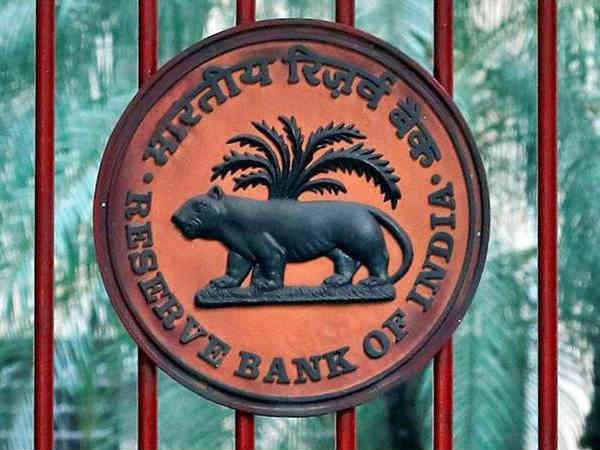|
E-Tender No. RBI/Kochi/Estate/380/20-21/ET/583
The pre-bid meeting for the captioned Tender was held at 11:00 hrs on February 25, 2021 as per the schedule of tender at the Seminar hall in the Office Building of Reserve Bank of India, Ernakulam North, Kochi – 682018, by maintaining social distancing and as per COVID-19 protocols.
Shri. S Ravindran, Assistant General Manager (Premises), Shri. Nithi Hariram, Manager (P&SO), Shri. Pavankumar Nayak, Assistant Manager (Premises), Shri. Harikrishnan P M, Assistant, and Smt. Reshma Sajeev, Assistant, were present from Bank’s side and the representatives from various companies / agencies (list attached in Annex) participated in the meeting.
Shri. S Ravindran, Assistant General Manager (Premises), welcomed all participants to the meeting and invited for queries, if any, from the prospective bidders regarding the captioned tender.
Details of queries raised by representatives of various companies / agencies and clarification / comments / corrigendum of the Bank are tabulated below.
| Sl. No. |
Query |
Comments / Corrigendum by the Bank |
| 1. |
Whether any transaction fee has to be paid to the Bank for participating in the Tender. |
No payment has to be made to the Bank in this regard. The transaction fee is charged by MSTC Limited and the payment of Transaction fee has to be made only through MSTC Gateway / NEFT / RTGS in favour of MSTC Limited or as advised by MSTC Limited. The amount to be paid will also be as advised by MSTC Limited. |
| 2. |
How to carry out the waste disposal |
The disposal of all kinds of wastes including horticultural waste, housekeeping waste and wastes collected from the Office building and Residential flats etc. is the responsibility of the contractor. The collection and segregation is also under the scope of the contractor. The segregated wastes has to be removed from the Bank’s premises, at the time intervals as specified by the Bank, strictly adhering to the extant laws, rules, regulations etc. in place, by the authorities concerned like Central Government, State Government, Kochi Municipal Corporation, Pollution Control Board, other local Self-Governing Authorities, Health Department, Courts, other authorities etc. The Contractor shall be solely responsible for disposal of waste outside the Bank’s premises conforming to the extant laws and the Bank shall not be liable or held responsible in this regard. Further, incinerator facility is not available in the Bank’s premises and burning of any kind of wastes inside the Bank’s premises is strictly prohibited and will be penalised. Refer, “III) WASTE MANAGEMENT WORKS” under “Section VIII – DETAILED SCOPE OF WORK” of the tender document for more details. |
| 3. |
Whether the maintenance of Organic Waste Converter falls under the scope of work. |
Day-to-Day operation and daily upkeep of the Organic Converter Plant and the nearby areas come under the scope of work of the contractor. However, the Annual Maintenance of the Organic Waste Converter machine is a separate contract and does not come under the scope of the work of the above Tender. Refer, “III) WASTE MANAGEMENT WORKS” under “Section VIII – DETAILED SCOPE OF WORK” of the tender document for more details. |
| 4. |
Whether Bank will revise the amount quoted under Serial Number 1 and 2 of the Financial Bid i.e. Amount for Basic Wages and Variable Dearness Allowance (VDA) |
Bank will not entertain the Contractor’s claim for revision of rates during the currency of contract except when changes in two components of minimum rates of wages only viz. the Basic rates and Variable Dearness Allowance (VDA), as announced by the Government of India under the Minimum Wages Act / The Code on Wages, 2019, whichever is relevant. The amount of such hike in monthly contract amount, in proportion to the monthly duties, will be restricted only to the increase in Basic rates and Variable Dearness Allowance (VDA). The revision in monthly bill amount will be restricted to the amounts quoted under serial numbers 1 and 2 of the financial bid and the revision will be done only proportionally to the increase in basic rates and variable dearness allowance (VDA) parts of the wages. However, there will not be any limit in revision of the amounts quoted under serial numbers 1 and 2 of the financial bid.
Accordingly, para “2.3.” in page number 13 of 88, under “Section II – General Instructions regarding Technical and Financial bids”, para “Q.” in page number 24 of 88, under “Section IV – Articles of Agreement”, and para “65.” in page number 24 of 88, under “Section VII – TERMS AND CONDITIONS” stands corrected / amended as given below:
“The quote offered by the Contractor in the financial bid shall be firm and final and the Bank will not entertain the Contractor’s claim for revision of rates during the currency of contract except when changes in two components of minimum rates of wages only viz. the Basic rates and Variable Dearness Allowance (VDA), as announced by the Government of India under the Minimum Wages Act / The Code on Wages, 2019, whichever is relevant. The amount of such hike in monthly contract amount, in proportion to the monthly duties, will be restricted only to the increase in Basic rates and Variable Dearness Allowance (VDA). Any other components which form part of wages or allowance which are statutory in nature viz. EPF, ESI, Bonus etc. which are dependent on the Basic rates and/or Variable Dearness Allowance (VDA) will not be considered by the Bank for the revision in monthly contract. The Contractor shall factor in the possible escalation of these statutory components other than Basic rates plus VDA and offer the best rates in such a way as to accommodate these incremental costs under serial number 3 of the financial bid. The revision in monthly bill amount will be restricted to the amounts quoted under serial numbers 1 and 2 of the financial bid and the revision will be done only proportionally to the increase in basic rates and variable dearness allowance (VDA) parts of the wages. The decision of the Bank in the matter will be final.”
|
| 5. |
Clarification on number of duties on National holidays and additional payment of wages in this regards. |
The number of duties on each day will be as specified in the tender regardless of National / festival / Bank holidays. The total number of duties of the “Facility Manager” for the year 2021-22 is 313 and the total number of duties of “other workers” together for the year 2021-22 is 7146 (22 x 313 + 5 x 52). The charges for wages including statutory requirements like ESI, PF etc. must be quoted by the contractor according to the above number of duties. Additional payment towards wages for relievers, services rendered by labours on National and Festival holidays etc. shall be borne by the contractor. The charges for the same shall be included under serial number 3 of the financial bid. Contractor is bound to maintain prescribed number of workers/supervisors at all days in a week as specified in the tender document. Any shortfall observed in maintaining the specified manpower requirement will force the Bank to impose penalty as stipulated in the tender document. However, it may also be noted that the Bank reserves the right to increase or decrease the number of duties based on its requirement, before awarding the work, at the time of renewal, if any, or at any time during the currency of contract. The monthly contract amount shall be proportionately arrived at when the Bank resorts to such change in the number of duties. |
| 6. |
Whether rooms for storage of consumables, cleaning materials etc. and rooms for workers will be provided by the Bank |
The Bank will provide storage room and room for changing of dress etc. for the workers of the contractor. |
| 7. |
Whether supply of garbage bags comes under the scope of the tender |
Garbage bags will be provided by the Bank. However, collecting the garbage bags from the Bank, distribution of the same / placing the same in the designated dust bins etc. comes under the scope of the tender. |
| 8. |
Whether there is any condition for ISO certification of the firm |
The Companies / Firms / Agencies shall have certification viz. ISO 9001-2008 or higher, for quality management system, and it shall be verifiable and valid as on the last date of submission of E-tender.
Accordingly, the following amendments / corrigenda in the Tender document is notified:
1. In the table under para “1.2. Eligibility criteria for participating in the tender”, in page number 11 of 88, under “Section – II – General Instructions regarding Technical and Financial bids”, “1. PART- I (Technical bid)”, one more row with the following descriptions is added:
Sl. No. – “6”
Criteria – “ISO Certification”
Requirement – “The Companies / Firms / Agencies shall have certification viz. ISO 9001-2008 or higher, for quality management system, and it shall be verifiable and valid as on the last date of submission of E-tender.”
2. Under para “1.4. Documents to be uploaded”, in page number 12 of 88, under “Section – II – General Instructions regarding Technical and Financial bids”, “1. PART- I (Technical bid)”, one more clause (“m)”) with the following words and figures, is added under para “(i) Scanned copy of Original Documents to be uploaded online through ‘mstcecommerce’ portal in PDF format while submission of e-Tender (Each file size should not exceed 5 MB):”:
“m) Any valid document in support of Company / Firm / Agency having certification viz. ISO 9001-2008 or higher, for quality management system.”
|
| 9. |
What is the approximate number of water closets / urinals / wash basins etc. in the Bank’s premises, for providing tissue papers, urinal screens, naphthalene balls, hand wash etc. |
The approximate number of toilets / washrooms / wash basins etc. in the Bank’s premises is as given below:
1. Gents Urinals – 13
2. Wash Basins – 46
3. Water Closets (Western) – 28
4. Water Closets (Indian) – 9
|
| 10. |
Clarification regarding the One-time collection and disposal of waste under the scope of work |
Refer para “V) ONE-TIME COLLECTION AND DISPOSAL OF WASTE”, under “Section VIII – DETAILED SCOPE OF WORK” of the tender document. The charges / amount for the same shall be paid by the bank separately and the same shall not be included in the amounts to be quoted in the financial bid. The charges / amount for the same shall be arrived at, by the Bank on the basis of the amounts quoted by the contractor under various items in the financial bid and also the amount of waste materials to be removed, at the time of beginning of the contract, the amount of labour involved etc. |
| 11. |
Whether providing sanitiser comes under the scope of work of the tender |
No. |
| 12. |
Whether cutting of trees comes under the scope of work. |
Cutting down of all kinds of trees / branches as and when directed by the Bank, comes under the scope of the contractor. However, for cutting down of bigger trees / branches, the Bank shall pay the cost for the works involved, separately to the contractor, based on competitive markets rates. However, the decision of the same, will be done solely by the Bank and the decision shall be final and binding on the contractor. Refer “II) HORTICULTURE AND GARDENING WORKS” under “Section VIII – DETAILED SCOPE OF WORK” of the tender document for more details. |
| 13. |
Under which categories does the facility Manger and other workers fall, for calculating the minimum wages. |
The Facility Manager engaged by the Contractor shall fall under the category of ‘Semi-Skilled/Unskilled Supervisory’ (Area B) of workers employed, and all other staff engaged by the Contractor shall fall under the category of ‘Unskilled’ (Area B) of workers employed in “Construction or Maintenance of Roads or Runways or in Building Operations including laying down Underground electric, wireless, Radio, Television, Telephone, Telegraph and Overseas Communication cables and similar other Underground cabling work, Electric lines, Water supply lines and Sewerage pipe lines” as mentioned in the Government Order issued from the Office of the Chief Labour Commissioner(C) dated October 12, 2020. Revision of wages also, as and when announced by Govt. of India, for the Facility Manager and all other staff, will be with respect to the above categories only. |
| 14. |
Whether reliever is required if the Facility Manager is on leave or unable to attend duty. |
Yes. The minimum number of duties as specified by the Bank must be fulfilled by the contractor. Alternate arrangements of relievers should be made by the contractor in cases where weekly holiday has to be given to any worker after doing duty continuously for 6 days and also in cases where a worker is on leave or unable to attend duty etc. to fulfill the minimum number of duties as required by the Bank on each day. Absence of workers to fulfill the minimum number of duties as required by the Bank will attract penalties as explained in clause 19 of section VII of the tender. |
| 15. |
Whether hose, sprinklers etc to be used for watering / horticultural works comes under the scope of the contractor |
Yes. Hose, sprinklers etc to be used for watering / horticultural works comes under the scope of the contractor. The charges for the same shall be included in the amount to be quoted under serial number 4 of the financial bid.
The following amendments / corrigenda in this regard is notified:
1. The wordings and figures under Para “31.” Under “SECTION VII – TERMS AND CONDITIONS”, in page number 47 of 88, shall be replaced by the following:
“All the consumables, cleaning / gardening / waste management materials, tools, equipments, machinery, vehicle, cleaning agents, detergents, disinfectants, insecticides, pesticides, fungicides, manure etc. required to carry out the works specified in the tender including any additional soil required for horticulture, fuel required to operate any machinery / vehicle, accessories and protective gears / ID cards / uniforms etc. to be provided to the workers, etc. has to be procured by the contractor. The cost for the same also has to be borne by the contractor. The bank will not pay any extra amount for the same. The annual expense for the above should be included by the contractor in the financial bid of the tender under serial number 4. All the above items mentioned should also be eco-friendly and approved by the Bank.”
2. The wordings and figures under Para “36.” Under “SECTION VII – TERMS AND CONDITIONS”, in page number 47 of 88, shall be replaced by the following:
“The cost for any additional labour required to carry out any of the works specified in the tender or the payment for any overtime work / additional hours put in by the workers as per statutory requirements has to be borne by the contractor. The bank will not pay any extra amount for the same. The annual expense likely to be incurred for the same may be included by the contractor in the financial bid of the tender under serial number 3.”
3. The wordings and figures under Para “8.11” under “III) WASTE MANAGEMENT WORKS”, in page number 73 of 88, under “SECTION VIII – DETAILED SCOPE OF WORK” shall be replaced by the following:
“The operation of Organic Waste Converter must be carried out daily, strictly adhering to the manufacturer’s instruction to operate the machine. The consumables like bioculum, sani treat, saw dust etc. and other equipments and materials required to operate the same must be procured by the contractor and at his own cost. The annual charges for the same may be included by the contractor in serial number 4 of financial bid of the tender.”
4. The wordings and figures under Para “8.19” under “III) WASTE MANAGEMENT WORKS”, in page number 73 of 88, under “SECTION VIII – DETAILED SCOPE OF WORK” shall be replaced by the following:
“The charges for disposal of all kinds of wastes, outside the Bank’s premises strictly adhering to the extant laws, shall be included under serial number 5 of the financial bid. No extra payment shall be made by the Bank for disposal / removal of any waste materials from the Bank’s premises, at any cost.”
|
| 16. |
Whether payment of EPF, ESI, Bonus etc. is mandatory |
Yes. Contractor is responsible for payment of all statutory components of the wages of all his workers. All statutory benefits like EPF, Bonus, ESI, and other statutory payments etc. have to be paid by the Contractor and the proof for the same have to be submitted along with the bills.
The following amendments / corrigenda in this regard is notified:
1. The wordings and figures under Para “2.4.”, under “Section – II – General Instructions regarding Technical and Financial bids”, “2. PART- II (Financial bid)”, in page number 14 of 88, shall be replaced with the following:
“Financial Bids not conforming to the statutory obligations like Minimum Wages, EPF, ESI, Bonus, Leave Relief etc. are liable to be rejected. The charges for the same shall be included under serial number 3 of the financial bid.”
|
| 17. |
Whether Client certificate, solvency certificate, Performance bank Guarantee etc. have to be submitted |
Client certificate, solvency certificate, Performance bank Guarantee etc. must be submitted as specified in the tender document. |
| 18. |
Which all machinery has to be used by the contractor |
The contractor has to use all the machinery which are required to carry out the works specified under “SECTION VIII – DETAILED SCOPE OF WORK” of the tender document, completely and efficiently. The charges for the machinery shall be included under serial number 4 of the financial bid. All the machinery required for carrying out the various works of the contract should be eco-friendly, branded and approved by the Bank and shall be procured by the Contractor/agency at its own cost. Bank will have the right to insist the contractor to use specific machinery for various works under the scope of the contract. The Bank will also have the right to monitor the quality and usage of all equipments, machinery, other materials etc. and also penalize the contractor for usage of any sub-quality items or insufficient / improper / inappropriate usage of such items. A tentative / indicative list of machinery to be used are given below:
a. Scrubbing Machine
b. Jet Wash
c. Lawn mower
d. Water pumps
e. Pesticide spray pump
f. Power saw
g. Grass Cutter
|
| 19. |
Whether any relaxation in EMD available for NSIC / MSME / MSE registered agencies |
No. |
The meeting concluded by 12 Noon.
|











